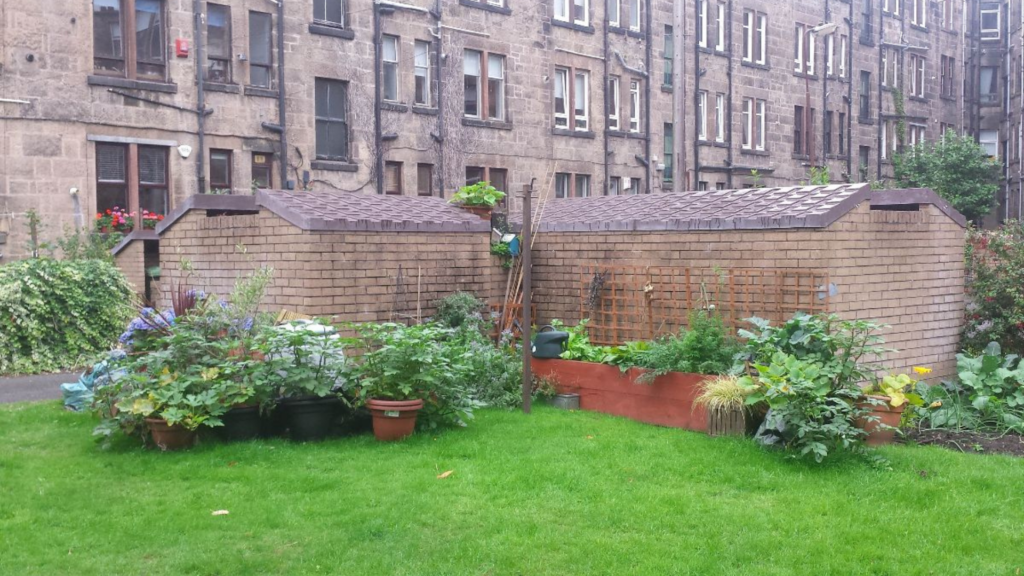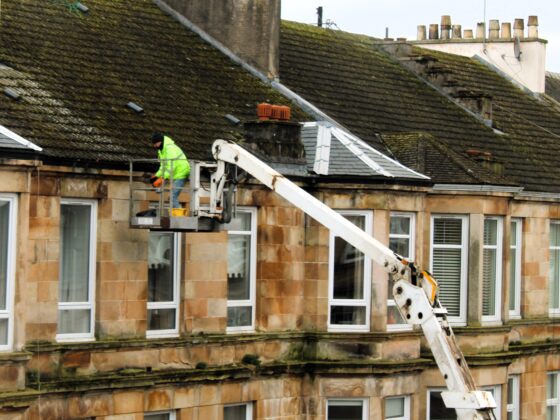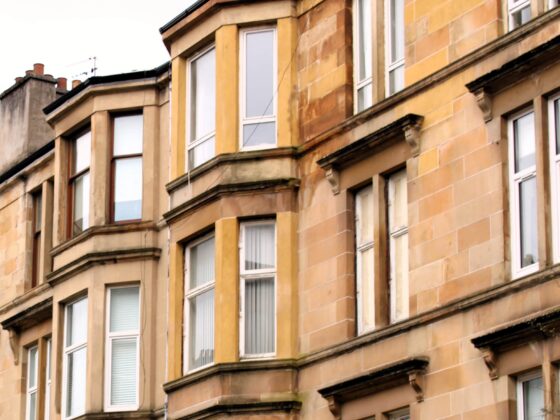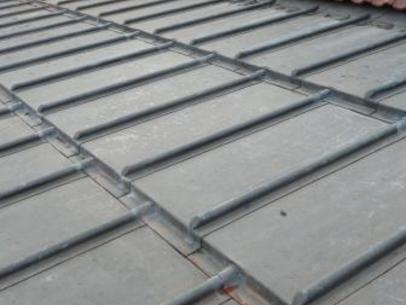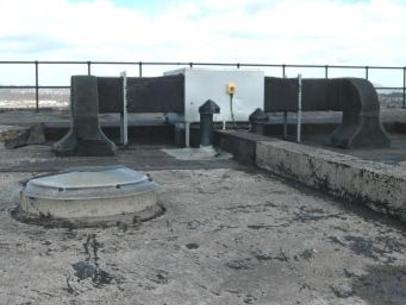Who can use the communal outdoor area?
Most people who live in a tenement block have access to the back communal outdoor area, such as a garden or a courtyard. However, those living in main door flats, flats accessed from outside rather than via a communal stairwell, are often not permitted to use the communal outdoor area. Instead, they may have access to a front garden.
If your building does not have a main door flat but has a front garden, the front garden is likely the ground floor owners’; responsibility.
Check your title deeds if you’re unsure about whether you have access to the communal outdoor area. This information can be found in the property section of your title deeds.
Read our short guide to title deeds to find out more about title deeds and how to use them.
Some examples of communal gardens from our website.
Keeping the communal area safe and clean
Outdoor communal areas are usually a common responsibility. This means that all owners are responsible for its maintenance.
There are several ways to manage and maintain the communal outdoor area. Owners may decide to take turns looking after the area or one owner may be happy to take on the responsibility. Or, if suitable, the outdoor area may be divided into sections, with each owner having an individual patch to take care of. The owners of each building can decide what works best for them.
If you have a factor, they may include maintaining the outdoor area as part of their service agreement. In this case, your factor will maintain the outdoor area. However, if there is no mention of outdoor area maintenance in your factor’s service agreement, you and your co-owners are responsible for maintaining it.
Problems with outdoor communal areas
Problems can arise with outdoor communal areas, such as issues with dog fouling or the dumping of large refuse items, like broken sofas or mattresses.
Check the title deeds for your building to find out the rules of what you can and cannot do with the communal outdoor area. The burdens section of your title deeds contains these rules.
To keep the area clean and safe for everyone to use, it can be helpful to have an owners’ association in your building. When dealing with problems with your building, an owners’ association can help to improve communication between owners and make decisions in a more formal way. This can make it easier to maintain and manage the communal parts of your building, like the outdoor area.
If you don’t have an owners’ association but there are issues with your communal outdoor area, consider talking to your neighbours about keeping it clean. Our article on how to have difficult conversations can help.
If there is an issue with dog fouling or an accumulation of waste that can be considered a health hazard, you can contact the Environmental Health team at your local council for further advice and information.
Large items, such as sofas or mattresses, dumped in the communal outdoor area will not be collected by regular refuse collectors. In such cases, residents should arrange for a council or private collection for a fee.

